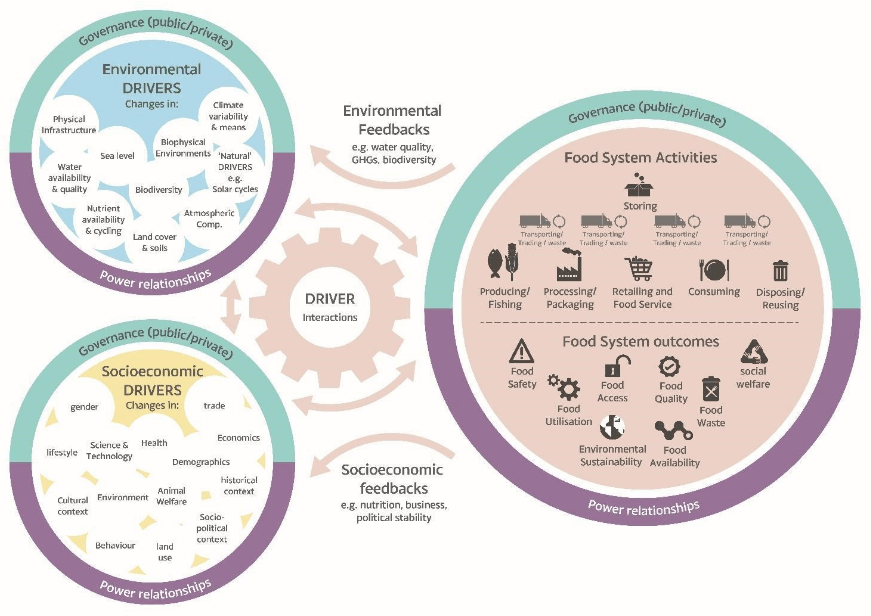Food Waste Impacts
There’s a Climate Emergency going on and what we don’t eat has a lot to do with it. Whether you work in the food sector or are a consumer, we all eat and therefore, everyone of us has a role to play in the food system. With vast quantities of food going to landfill, the focus of this post is around addressing Food Waste.
To put you in the picture, here are some basic Food Waste facts;
- It’s estimated that a monstrous THIRD of ALL the food produced never get eaten
- That accounts for 8-10% of the global greenhouse gas (GHG) emissions
- The land space needed to produce all this uneaten food is equivalent to the area of China
- Yet, some 800 million people go to bed hungry. (Try it one night; it isn’t pleasant.)
The industry produces billions of tonnes of unused food along with the vast environmental impacts which we need to avoid. Think of it in terms of unnecessary loss of habitat and associated biodiversity, water usage causing shortages in drought prone areas, runoff of fertilizer polluting waterways and further damaging both drinkable water and aquatic life. As you can see, these are all additional to the GHG emissions. There are also significant issues to address around the food we do actually consume, which will be a topic for another post.
The Food System
Our complex food system can be broken down into stages or activities.
- Producing/Fishing
- Processing and packaging
- Retailing/ Food service /Hospitality
- Consuming
- Disposing/Re-using
The proportion of food waste in the UK at each of these stages has been calculated by WRAP. Post farm gate, almost a fifth of wastage occurs at the processing stage, followed by 10% in the hospitality, retail and food service sector. That leaves the remainder of unwanted food, often perfectly edible, being disposed by individual consumers, amounting to 70% of our UK discard.
The Cost of Wasted Food
No matter where you fit in the food system, there is something you can do about it. Naturally, we’re all consumers so need to pay attention to wasting less in our domestic kitchens. (You can read more about that here). But if you work in the food sector, there is a lot that can be done to reduce food waste.
From a business perspective, it makes sense to control food losses through wastage at all stages of your processes. Better control means the cost of purchasing your product is less but it’s not the only potential saving. By processing or cooking less, you’ll be using less energy, which is one of the major expenses of any business. Then there’s the waste collectors who have to be paid for the food you’ve purchased, stored in chiller cabinets, cooked, paid people to prepare and never used.
Aim for Zero
Setting goals is a great way to ensure the success of a programme. Zero food waste is the ultimate goal which will only be achieved if you aim for it.
We can work with you to observe, measure and develop plans to reduce surplus and assess other impacts for example menu delivery. There is a lot of existing technology to choose from for measuring and recording data, in the form of apps and other tools. These can be adapted to your existing processes. Additionally, we can help you with staff training, with a focus on motivating everyone to play their part. Bringing people along with you yields fantastic results.
What Next?
If you want to put a programme in place to identify, measure and reduce your organisation’s food waste and other food related impacts, call Michelle for a friendly chat. Or drop us a message via the contact form.
———–



Recent Comments